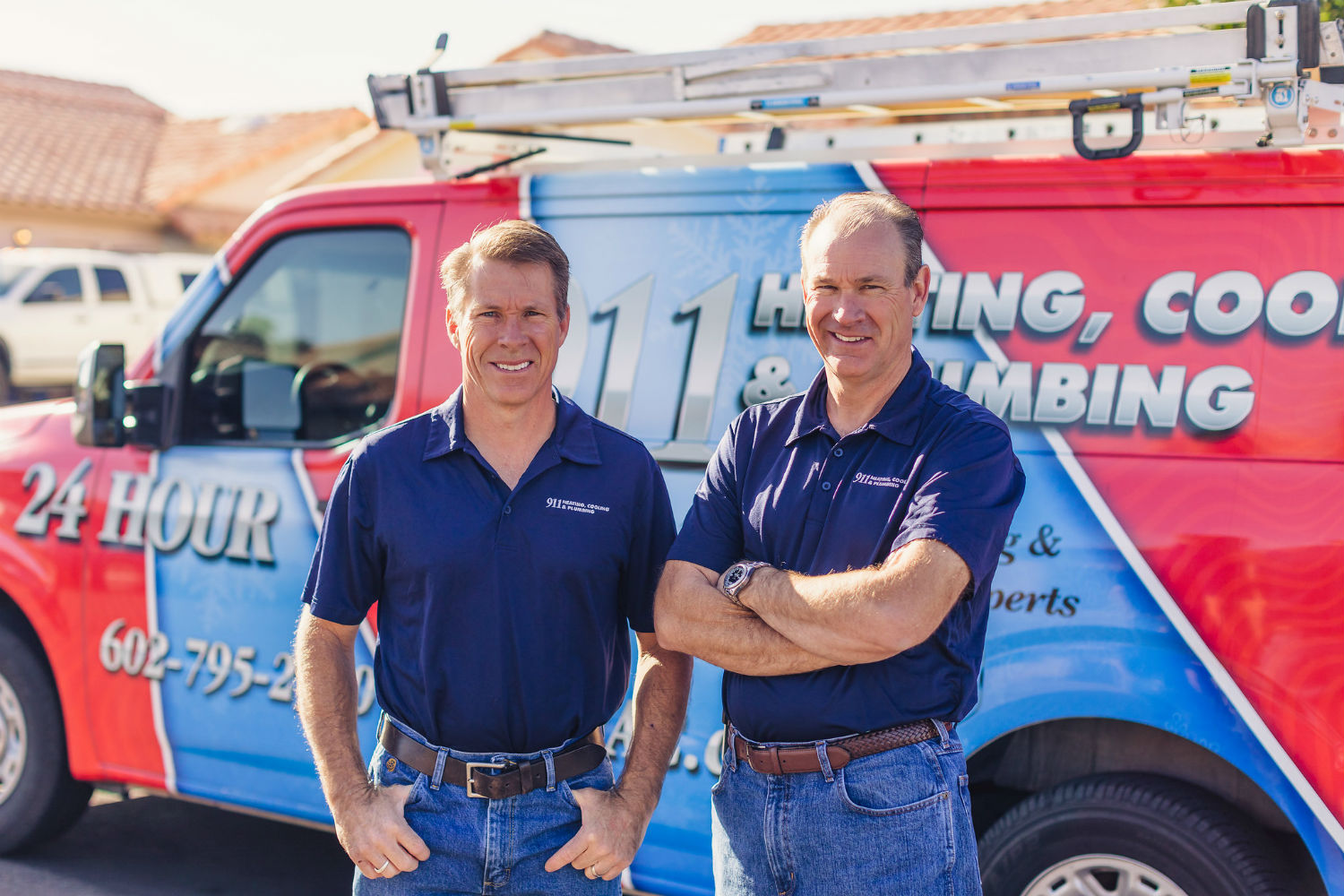
Heat Pump Replacement Service in Phoenix and Surrounding Areas
Replacing an old or inefficient heat pump helps maintain an effective and energy-efficient climate control system. Specialized technicians provide heat pump replacement services in residential and commercial settings. These services upgrade heating and cooling systems to newer, more efficient models, offering improved performance and energy savings.
The replacement process begins with a comprehensive evaluation of the existing system to determine its efficiency and overall condition. Technicians assess whether the current unit meets the property’s heating and cooling demands or if a more advanced model would provide better performance and energy efficiency. Factors such as the size of the property, existing ductwork, and specific climate needs are considered when selecting an appropriate replacement.
-
Once a suitable model is chosen, skilled technicians manage the installation process. This involves safely removing the old unit, preparing the site for the new system, and ensuring that the installation is performed with precision. Proper heat pump setup is crucial for its effectiveness, involving careful configuration of the system’s components, including the outdoor unit, indoor handlers, and all necessary electrical connections.
After installation, the new heat pump is thoroughly tested to verify its functionality across various operational modes. Technicians also guide property owners on utilizing and maintaining the new system to maximize its lifespan and maintain high efficiency.
Overall, professional heat pump replacement services enhance indoor comfort and contribute to significant long-term savings on energy costs, making them a wise investment in sustainable and effective climate control.
Signs It’s Time for Heat Pump Replacement
-
System’s Age
When a heat pump is over a decade old, it’s likely nearing the end of its useful life. Older systems tend to have more issues and may perform less efficiently than newer models. Upgrading to a modern system can provide better comfort and energy savings. Aging components are more prone to failure, leading to potential disruptions in heating and cooling services.
-
Frequent Breakdowns
Regular malfunctions and the need for frequent repairs indicate that a heat pump may be beyond its prime. Continual issues not only increase maintenance costs but also reduce overall reliability. Consistent problems can disrupt home comfort and may signal that investing in a new, more dependable unit is a more cost-effective solution in the long run.
-
Decreased Efficiency
When energy bills increase but use does not, this can signal that a heat pump is losing its efficiency. As systems age, they can struggle to maintain performance levels, leading to higher operational costs. Upgrading to a more energy-efficient model often reduces energy consumption and lowers utility expenses while improving overall comfort.
-
Uneven Heating or Cooling
Inconsistent temperatures throughout the home can indicate that a heat pump is struggling to distribute air evenly. Hot and cold spots often indicate system wear and tear or inadequate capacity. Replacing the unit with a new system can help achieve consistent and balanced climate control, enhancing indoor comfort.
Benefits of Heat Pump Replacement
-
Modern heat pump systems incorporate advanced technology that dramatically reduces energy consumption compared to older models. The latest units feature variable-speed compressors and enhanced heat exchange surfaces that optimize performance under varying conditions. Our analysis shows that replacing an aging system reduces energy usage by 20-30% or more. These improvements stem from better component design, smarter controls, and more efficient operation across all temperature ranges. The cumulative effect transforms home comfort while reducing environmental impact through lower energy demands.
-
New heat pump technology delivers superior temperature and humidity control throughout the living space. The variable-speed operation allows precise adjustment to changing conditions, maintaining consistent comfort levels in every room. Advanced air handling systems provide quieter operation while improving air distribution. Modern heat pumps respond more quickly to temperature changes and maintain tighter control over desired settings. The result is a more comfortable indoor environment with fewer temperature fluctuations and better humidity management throughout Phoenix's varying seasons.
-
Contemporary heat pump systems utilize environmentally responsible refrigerants and operating principles that reduce carbon footprint. These units maximize heat transfer efficiency while minimizing energy waste, contributing to reduced greenhouse gas emissions. Advanced filtration systems improve indoor air quality by removing more airborne particles. The combination of higher efficiency and better environmental stewardship makes modern heat pumps an environmentally conscious choice for home comfort. This technology aligns with current sustainability goals while providing reliable heating and cooling.
-
Investment in a new heat pump system generates substantial financial benefits through reduced utility costs and lower maintenance expenses. Modern units require fewer repairs and operate more efficiently throughout their service life. Combining lower energy consumption and reduced repair needs creates significant cost advantages over maintaining an aging system. These savings accumulate year after year, while the improved reliability eliminates unexpected repair expenses. Additionally, many new systems qualify for utility rebates and tax incentives, further enhancing the financial benefits of replacement.

We Provide Plumbing and HVAC Service To All Of Maricopa County
Phoenix
Mesa
Scottsdale
Tempe
Gilbert
Fountain Hills
Paradise Valey
Peoria
Glendale
Chandler
San Tan Valley
Queen Creek
Surprise
Ahwatukee
Avondale
Reviews
Our Heat Pump Replacement Process
-
The heat pump replacement process begins with an initial assessment. Technicians evaluate the current system, inspect the property, and discuss the specific heating and cooling needs. These evaluations help determine the most suitable replacement unit, considering factors like size, efficiency, and budget.
-
Technicians must carefully remove the old heat pump. They disconnect and safely dispose of the existing unit, allowing no damage to the surrounding area. Proper handling and disposal of the old system comply with environmental regulations, making way for the new installation. This process involves meticulous work to prepare the space for the new equipment.
-
The new heat pump installation is done with precision and expertise. Technicians install the new unit, connect it to the existing ductwork and electrical systems, and make necessary adjustments to optimize performance. The installation process is conducted efficiently to minimize disruption, meaning the new system is set up correctly for optimal operation.
-
Testing and commissioning are the final steps in the heat pump replacement process. Technicians thoroughly test the new system to verify proper operation, checking for any issues and making necessary adjustments. They may calibrate the thermostat, inspect airflow, and check that the system operates efficiently and safely. The new heat pump is commissioned to provide reliable heating and cooling.
Heat Pump Maintenance Tips to Extend Lifespan
-
Regular Filter Changes
Clean filters serve as the first line of defense for heat pump systems, protecting internal components from harmful debris. Professional maintenance schedules include filter evaluations to determine optimal replacement intervals based on usage patterns and environmental conditions. Regular replacement maintains proper airflow through the system, reducing strain on mechanical components while improving indoor air quality. This fundamental maintenance step helps prevent unnecessary wear on the blower motor and extends the operational life of the entire system.
-
Annual Inspections
Professional system evaluations provide essential insights into heat pump performance and potential maintenance needs. Our certified technicians comprehensively examine electrical connections, refrigerant levels, and mechanical components during each inspection visit. These detailed assessments identify minor issues before they develop into costly repairs. Regular professional inspections maintain optimal system efficiency while documenting performance trends throughout the equipment's service life.
-
Proper Insulation
Well-insulated refrigerant lines and ductwork maximize heat pump efficiency and protect system components. Professional evaluation of insulation conditions prevents energy waste while maintaining proper temperature control throughout the distribution system. Regular inspection and maintenance of insulation materials prevent condensation issues and protect against temperature losses. This attention to system insulation helps maintain consistent performance in all operating conditions.
-
Clearing Debris
Maintaining clear space around outdoor units preserves proper airflow and heat exchange capabilities. Professional maintenance includes carefully cleaning coil surfaces and removing vegetation or debris that might restrict system operation. Regular clearing prevents the accumulation of materials that could damage components or reduce efficiency. This systematic approach to maintaining the outdoor environment helps preserve optimal heat pump performance.
Choose 911 Heating, Cooling & Plumbing for Heat Pump Replacement in Phoenix, AZ
-
Our deep understanding of Phoenix's climate challenges guides every heat pump replacement project. Years of experience in the Valley have refined our installation techniques and system recommendations to perfectly match local conditions. Our team's knowledge encompasses technical requirements and regional considerations affecting system performance. This specialized expertise translates into heat pump installations optimized for Arizona's unique environmental demands.
-
Our commitment to excellence shapes every aspect of the replacement process, from initial consultation through final system testing. Clear communication informs clients about project progress while our attention to detail maintains high installation standards. Professional crews protect property throughout the installation while minimizing disruption to daily activities. This dedicated approach has built lasting relationships with homeowners throughout the Phoenix metropolitan area.
-
Our established supplier relationships and efficient operations enable attractive pricing on quality heat pump systems. Transparent cost estimates include all necessary components and labor for complete installation. Various financing options help make the installation of the new system more accessible for households in the Phoenix area. This commitment to value extends through warranty coverage and ongoing support services.
-
Our round-the-clock response team stands ready to address urgent heating and cooling needs throughout the Phoenix area. Fully equipped service vehicles and experienced technicians enable rapid response to system failures. Our emergency services include temporary cooling solutions when needed during replacement projects. This comprehensive support helps minimize discomfort during unexpected system issues or replacement procedures.
Get A Free Quote
When needing heat pump replacement in Phoenix, call 911 Heating, Cooling & Plumbing. Their skilled team offers reliable and professional replacement services.
FAQs
-
A heat pump is an energy-efficient HVAC system that heats and cools your home. If it's old, inefficient, or requires frequent repairs, you may need to replace it.
-
Signs that it's time for replacement include inconsistent temperature, higher energy bills, strange noises, frequent breakdowns, or your unit is over 10-15 years old.
-
Heat pump replacement is a complex task that requires professional knowledge and skills. For safety and efficiency, it’s recommended that you hire a licensed technician.
-
A heat pump's average lifespan is around 10-15 years, depending on its usage, maintenance, and installation quality.
-
The process typically includes removing the old unit, installing the new heat pump, and performing system checks to ensure optimal performance.
-
The cost varies depending on your home size, unit type, and installation complexity. On average, it can range from $4,000 to $8,000 or more.
-
Regular maintenance, such as cleaning the filters, annual professional servicing, and ensuring your home is well-insulated, can help improve the efficiency of your heat pump.
-
Upgrading offers improved energy efficiency, lower utility bills, better cooling and heating performance, and enhanced comfort.
-
Yes! Federal, state, and local rebates or incentives are often available for replacing older systems with more energy-efficient units. Our team helps you navigate these programs.
-
On average, a heat pump replacement takes 4 to 8 hours. However, this varies depending on the complexity of the installation.
-
Modern heat pumps are typically much quieter than older models, offering improved noise reduction features for a more comfortable living environment.
-
Yes, heat pumps are ideal for the Phoenix climate. They can efficiently heat and cool your home, providing year-round comfort.
-
In most cases, your existing ductwork can be reused, but our technician will assess it to ensure it’s in good condition. If replacement is needed, we’ll discuss the best options with you.
-
A technician will assess your home’s square footage, insulation, and other factors to determine the right size unit for optimal efficiency and comfort.
-
Yes, most new heat pumps come with a manufacturer’s warranty. Our team will also offer a labor warranty for the installation, providing you peace of mind.

